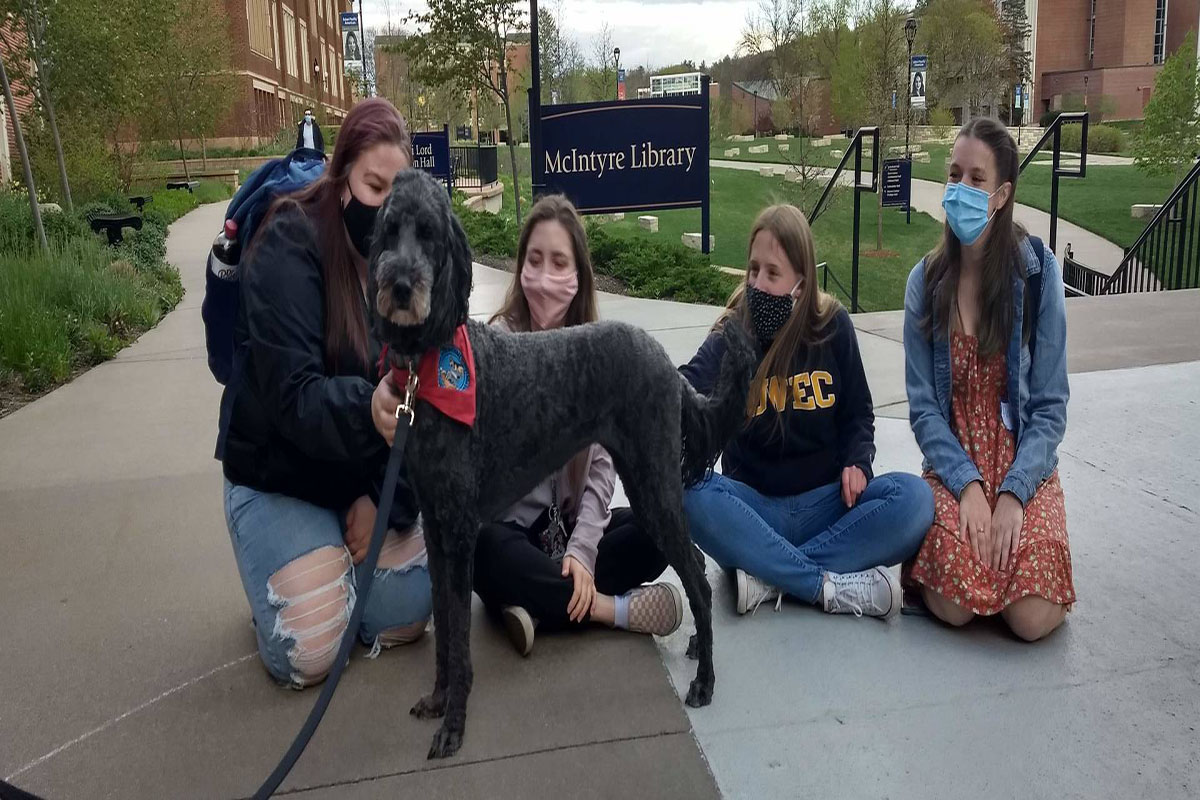Exploring the human cat-bond project conducted by Pet Partners, sending questions to participants asking them about the bond between them and their cats. Pet Partners is an organization where volunteers bring therapy pets to events.
The company, CatPerson, sponsored the survey. CatPerson is a company that sells food for cats.
On their website, Pet Partners explained that the survey suggests there are still many stereotypes associated with cats and being a cat person. One of the survey participants was Kathy Hosler, who volunteers her therapy animals at events.
“People think that cats are going to be mean or they’re going to be temperamental. They’ve got an attitude all of their own which is true, they do have their own attitudes, their own personalities, but that’s what makes cat people like cats,” Hosler said.
Hosler owns Kathy’s Animal Ark, where she keeps several animals, including registered therapy pets.
Among those animals are a skunk, chickens, a snake, tarantulas, a pig, a praying mantis and an axolotl named Lucy.
She saix she started with a rabbit as her first therapy pet. Before her rabbit passed, though, she said she visited a friend of hers whose cat had just had a litter of kittens.
Among that litter of kittens was her soon-to-be pet and therapy cat, Snickers, who Hosler said is now one of the top 100 therapy cats in the country. Hosler said she takes Snickers to many events including hospice visits. She said her cat, and animals in general, can sense more things than humans.
At UW-Eau Claire, Jenna Vande Zande, who handles user services and communications in the McIntyre Library, coordinates therapy dogs on campus but has never had a therapy cat event other than bringing some kittens to a sorority event.
“Unfortunately, cats, in all capacities, are considered pets, and pets aren’t allowed in state buildings. Therapy dogs, because they have their own liability insurance and, of course, service animals are considered medical equipment, so they’re not technically considered an animal,” Zande said.
She did have a cat on her own when she was a child and now said she wishes that there could be an event with cats on campus again.
“I think there are some studies that show that petting an animal, especially cats when they purr, that vibration is a calming factor for human beings, which is why we kind of bonded with cats originally,” Zande said.
Even though she has no cats, Zande said many of the therapy dogs she works with are excited to return every year and have even been a part of it their whole lives.
Even after those dogs pass, she said owners will train new dogs to take over the meeting with students.
Zande said she has many types of students who come visit the dogs such as those who only stay for a few minutes, and students who stay for the dog’s whole visit, which she calls “campers.”
“It is immediately apparent, as soon as someone comes in, that you can see they’re really tense: their brows furrowed, they’re frowning and that’s my favorite part. Students walk in, they see the dogs and it’s immediately a stress release,” Zande said.
Zande says therapy dogs will be on campus between Dec. 11-15 and Dec. 18-22.
Curtin can be reached at [email protected].








